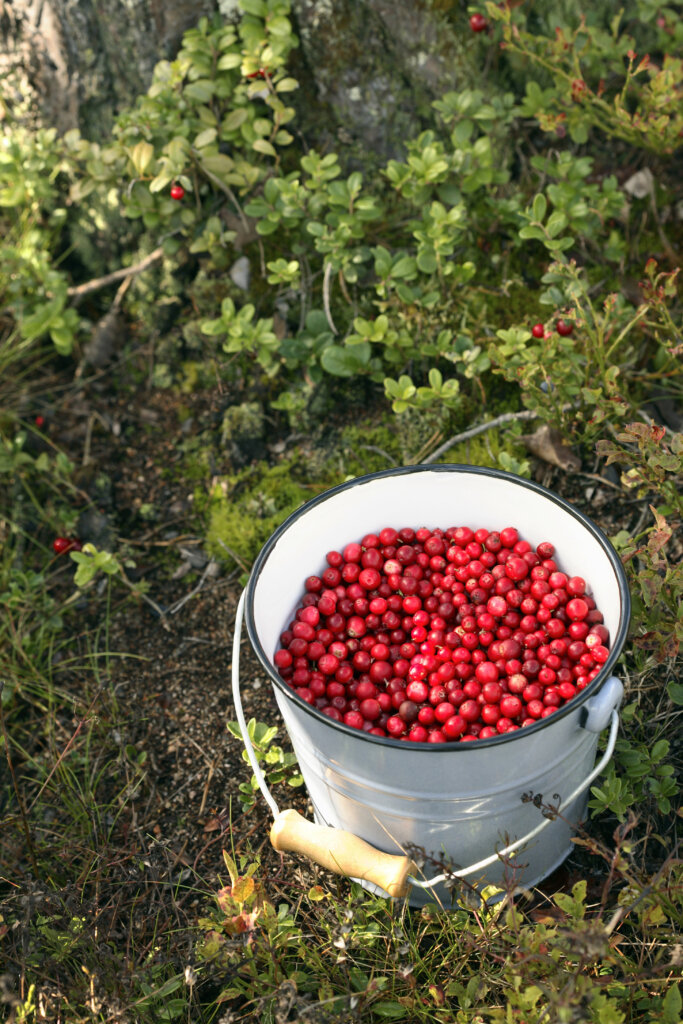The lingonberries
A bucket full of delicious lingonberries

No one really knows exactly why there is such a strong connection between Swedes and lingonberries, but a qualified guess would be something as simple as availability. The lingonberries, or as the ancient Romans would call them – Vaccinium vitis-idaea, often grow in pine or scots pine forests, which are vastly spread across the main part of northern Sweden and Scandinavia. The lingonberry plants are evergreen and do not mind the harsh climate and the cold weather that occurs in those regions. Quite the contrary actually, the plant does not thrive at all in regions where it gets too hot in the summer. Instead, it has no problem tolerating temperatures down to -40°C (-40°F) or lower.
Lingonberry plants grow from 10 to 40 cm (4 to 16 in) in height and they bloom, with white or pale pink bell-shaped flowers, in the early summer. Later, in the late summer or fall, the red berries ripen and are then ready for harvesting. Maybe this is also part of why they are so deeply rooted in the Swedes minds, because in Sweden we have something called “Allemansrätten”, which translates into something like “The Right of Public Access”. You rely on this right whenever you go outside in Sweden and it basically means that you have the right to take a walk, go kayaking, climb a mountain or pick flowers, berries, and mushrooms in the countryside – as long as you do not disturb or destroy anything.
Healthy and sweet - such a treat
Eating lingonberries fresh from the plant is truly refreshing and their taste is both sweet and sour at the same time. Wild lingonberries contain loads of organic acids, vitamin C, vitamin A (as beta carotene), B vitamins (B1, B2, B3), and the elements potassium, calcium, magnesium, and phosphorus. Lingonberries also contain high levels of benzoic acid, which helps keep the berries fresh for an extended period of time without adding any preservatives. To top it all off, they are naturally rich in antioxidants. Antioxidants are chemical molecules that prevent oxidation of our cells. Kind of like the body’s own anti-rust treatment. A long time ago, in traditional medicine, people used wild lingonberries to treat many different medical disorders, such as urinary tract infection, rheumatism, and diabetes.
At Felix, we do not claim to be any medical scientists, but it cannot be denied that the lingonberry sure do contain several health beneficial substances. We simply love our delicious “superberries”, and we hope that you will fall in love them too